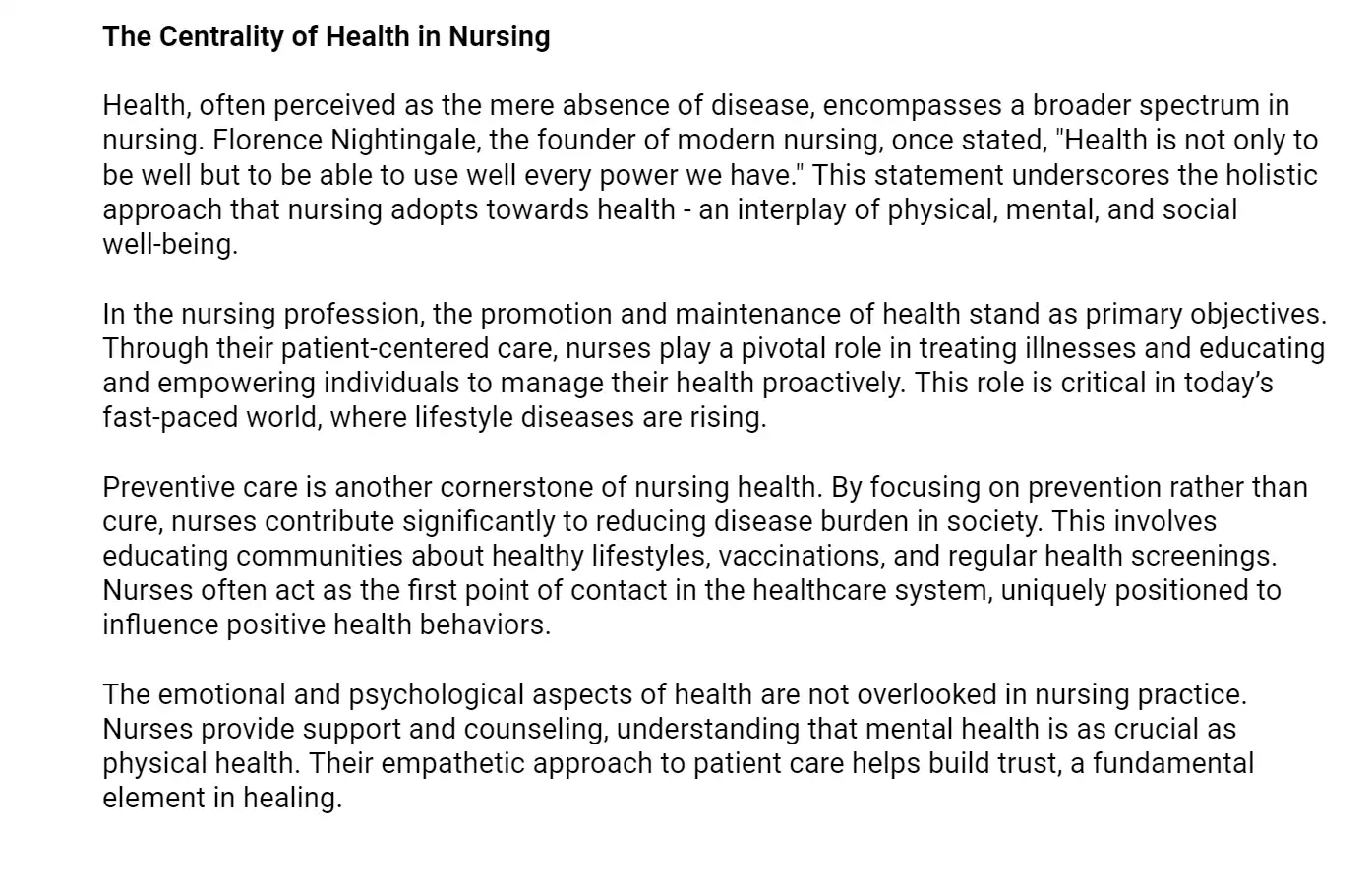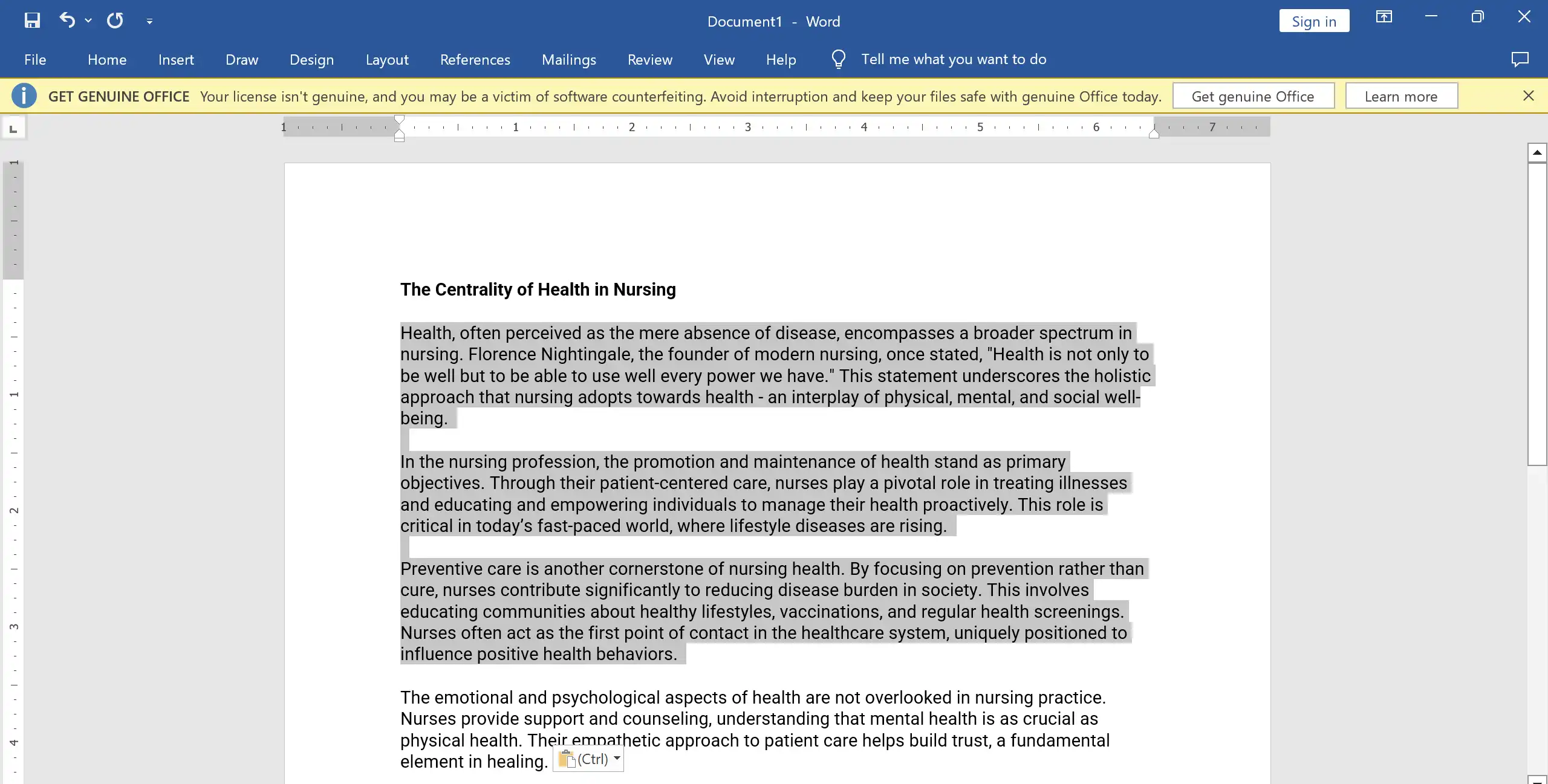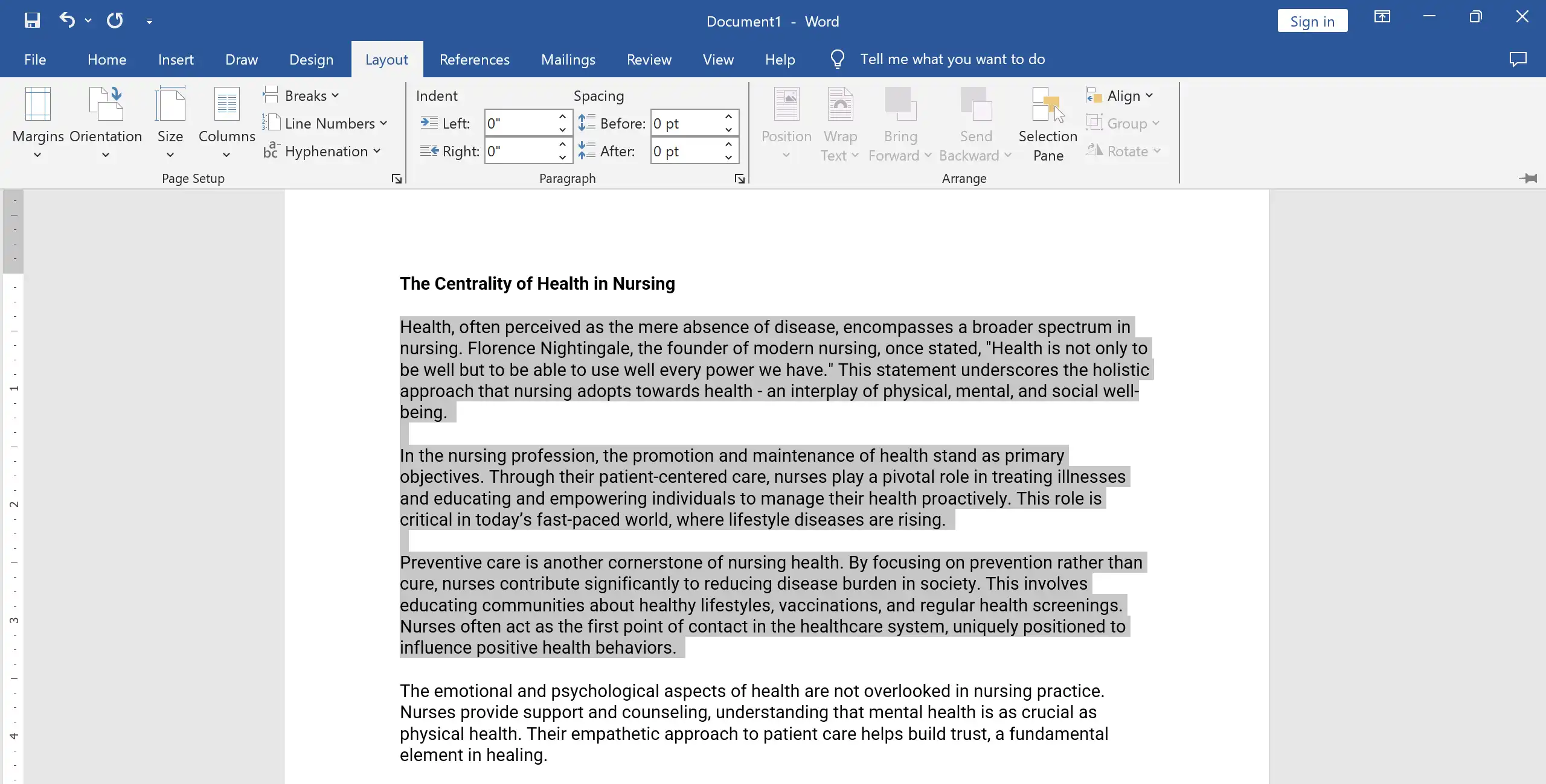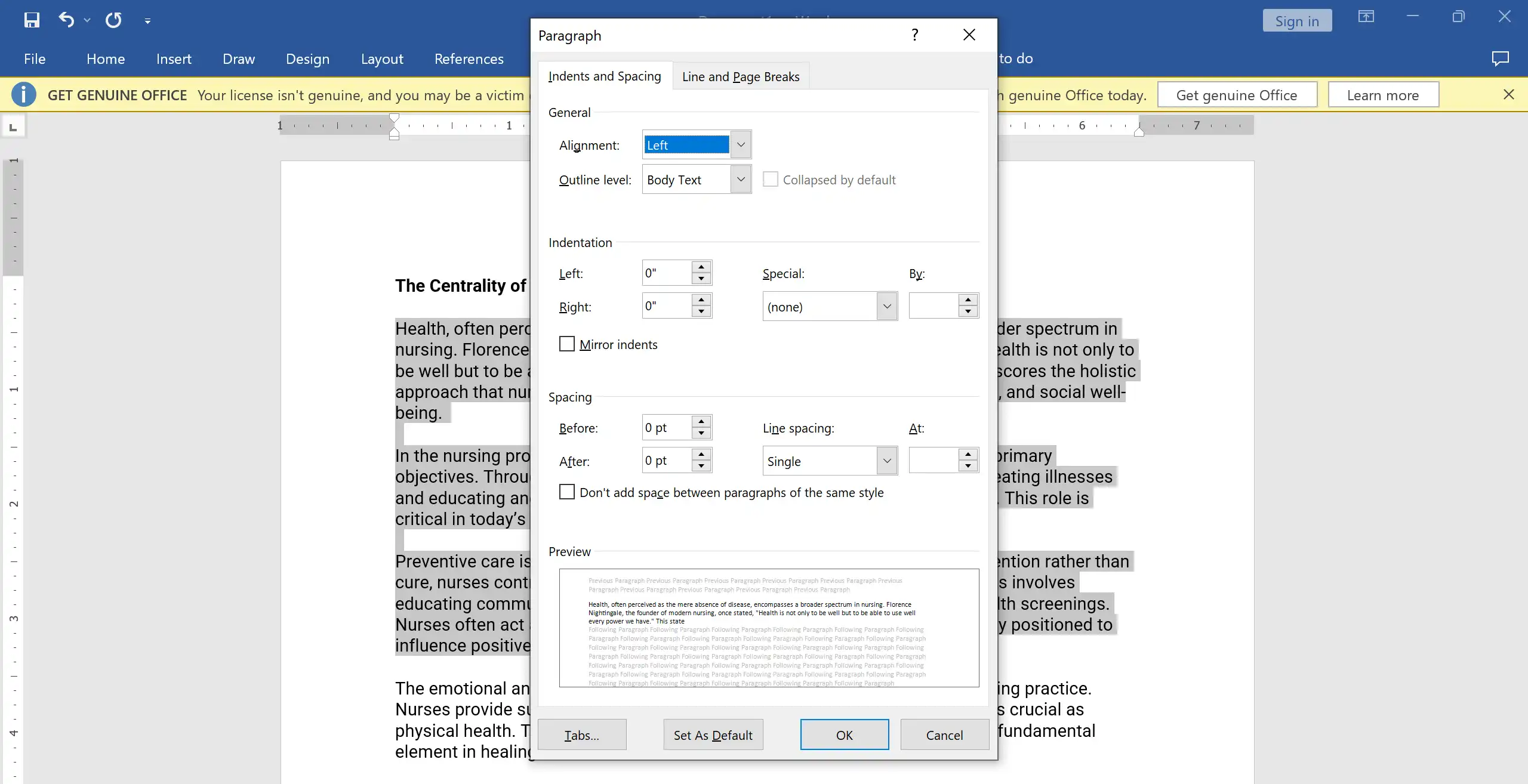How to Write a Double-Spaced Essay
How do you write a double-spaced essay? To write a double-spaced essay, first compose your essay in a word processor like Microsoft Word or Google Docs. Then, select your text and choose the ‘2.0’ option in the line spacing feature, which adds a full line of space after each line of text. This formatting makes your essay more readable and is often required in academic settings for clarity and ease of commenting.
This article will guide you through writing and formatting a double spaced essay, a skill essential for academic success.
What is a Double-Spaced Essay?
A double-spaced essay is a piece of writing composed on standard-sized paper (8.5″ x 11″) featuring one-inch margins. It is characterized by having double spaces between the lines within a paragraph while maintaining standard spacing between the paragraphs.
A double-spaced essay typically contains about 275 to 300 words per page, depending on the font size and style. This spacing format is preferred because it allows tutors to easily read, correct, and understand the ideas presented in the essay.
The word count per page can also vary based on the page margins. For example, an essay on an A4-sized page might have fewer words than one on a standard page with one-inch margins, which generally holds around 275 words.
For shorter essays, which range from 250 to 1000 words, with 500 words being common in college, the length can vary based on the essay’s requirements, prompt, and topic.
Students are often advised to use a font size of 11 or 12, depending on the font type. Not adhering to the specified spacing and formatting guidelines can result in penalties, including grade reductions.
Significance of Double Spacing in Essays and Assignments
Double spacing is significant for several reasons:
- Enhanced Readability: The additional space between lines prevents the text from appearing too dense, making it easier for readers to follow.
- Room for Comments: Double spacing allows instructors to insert comments and feedback in academic settings.
- Standardization: Many academic institutions and publications require double spacing to maintain a uniform appearance across all documents.
- Error Detection and Editing Ease: The extra space makes it easier to spot and correct grammar, spelling, and punctuation errors, thereby improving the overall quality of the writing.
- Professional Appearance: Double-spaced documents have a cleaner, more professional look, essential in academic and professional contexts where presentation is as important as content.
Double-Spacing vs. Other Styles of Spacing for Essays
Double-spacing is a common formatting style for essays, but it’s not the only option. Comparing it with other spacing styles can help understand their uses and benefits:
Double-Spacing: This style places a full blank line between each line of text. It’s preferred in academic settings for its readability and space for annotations. It’s ideal for longer essays where detailed feedback is expected. Here is an image showing what a double-spaced essay looks like:

Single-Spacing: In this style, lines of text are directly below each other with no extra space in between. It’s more compact, allowing more words per page. Single-spacing is often used for business documents or in settings where space is limited. Here is an image showing what a single-spaced essay looks like:

1.5 Spacing: This is a middle ground between single and double spacing. It makes text more readable than single spacing while saving space compared to double spacing. It’s suitable for shorter essays or documents where moderate readability is required. Here is an image showing what a 1.5-spaced essay looks like:

How to Set Double-Spacing on Your Computer
Setting double-spacing on your computer is a key skill for creating well-formatted documents, particularly for academic or professional writing. Below are simple steps to achieve double spacing in popular word processing programs like Microsoft Word and Pages on a Mac. By following these instructions, you can ensure your documents meet the necessary formatting standards for clarity and readability.
Pages on a Mac
To set double-spacing in your document using the Pages word processor on a Mac, follow these steps:
- Start by highlighting the text in your document if you have already written something.
- Click on the ‘Inspector’ button, identifiable by its blue icon at your window’s top right corner.
- A new window will open; select the ‘Text’ tab, represented by a large “T.”
- In this tab, locate the ‘Spacing ‘ section and enter ‘2’ in the box next to the slider, setting your document to double-spaced formatting.
On Microsoft Word Processor
To double-space your assignment in a Word document, simply follow these steps:
- If you’ve already typed some text in your Word document, begin by selecting (highlighting) it. If your document is still blank, you can skip this step.

- Next, click on the ‘Page Layout’ tab.

- In the ‘Paragraph’ section, you’ll notice a small arrow in the bottom left corner; click on this arrow to open a new window.

- The ‘Indents and Spacing’ tab will be open by default. Locate the ‘Line spacing’ dropdown menu and choose ‘Double’.
- Finally, click ‘OK’ to apply the changes.
How to Write a Double-Spaced Essay in 9 Simple Steps
Writing a double-spaced essay involves several key steps to ensure clarity, coherence, and proper formatting. Here are nine simple steps to guide you through the process:
Read the Essay Prompt
Understanding the essay prompt requires an in-depth examination of the prompt to grasp its key themes, questions, or requirements. Identifying these elements is essential as they form the backbone of your essay. Themes guide the direction of your research and writing, helping you stay focused and relevant.
The specific questions in the prompt dictate the areas you need to cover, ensuring that your essay is comprehensive and addresses all necessary points. Additionally, understanding any specified requirements, such as word count or formatting, is vital to ensure your essay meets the expected standards.
Select a Good Essay Topic
The key is to balance a topic that captivates your interest and one that aligns closely with the prompt’s requirements. It’s important to choose a subject you know or have a strong interest in, as this will reflect the depth and quality of your writing. At the same time, the topic should be sufficiently narrow or specific, allowing you to explore it in detail within the confines of your essay’s length.
This specificity ensures that you can delve deeply into the topic without exceeding word limits or skimming over important details. The right topic keeps you motivated throughout the writing process and ensures that your essay is focused, detailed, and relevant to the prompt.
Use Appropriate Evidence
Using appropriate evidence is a cornerstone of writing a strong, persuasive essay. It involves conducting thorough research to gather information from credible and authoritative sources. These sources can range from academic journals, which provide peer-reviewed and expert insights, to books authored by respected figures in the field and reputable websites known for their factual accuracy.
The key is to ensure that these sources are relevant to your essay’s topic and current, reflecting the latest research and developments. The evidence you select should directly support your thesis or main argument, providing solid backing for your claims.
Present Your Facts Well
Presenting facts effectively in your essay involves structuring it to ensure a logical flow from one point to the next. Each paragraph should center around a clear main idea substantiated by the evidence you’ve gathered. Using transitional phrases to weave these paragraphs together is essential to maintaining coherence throughout your essay.
This approach strengthens the clarity of your argument and enhances the overall readability, guiding your reader through a well-reasoned, cohesive narrative.
Have a Good Essay Structure
A well-structured essay is pivotal for effective communication of your ideas. It typically comprises an introduction that introduces the thesis and outlines the main points, a body where these points are developed and supported with evidence, and a conclusion that summarizes the main arguments and restates the thesis, providing a cohesive end to your narrative.
This clear structure not only guides the reader through your argument but also reinforces the cohesiveness and persuasiveness of your essay.
Use Simple Vocabulary
Using simple vocabulary is crucial in essay writing. While demonstrating knowledge is important, avoiding overly complex or technical language that might confuse the reader is essential. The goal is to communicate your ideas clearly and effectively. Opt for straightforward and accessible language, ensuring that your points are conveyed with clarity and precision.
This approach makes your essay more readable and ensures that your arguments are understood by a wider audience, regardless of their expertise in the subject matter.
Use Short and Long Sentences
Incorporating a mix of short and long sentences is an effective way to enhance the readability and impact of your essay. Short sentences are useful for making clear, impactful statements, while longer sentences allow for more detailed explanations and drawing connections between ideas.
This variety in sentence length adds rhythm and dynamism to your writing and helps maintain the reader’s interest, ensuring that complex ideas are conveyed with clarity and effectiveness.
Balance Your Paragraphs
Balancing your paragraphs is key to creating a well-structured and engaging essay. Aim for each paragraph to be of a length that allows a complete and coherent idea or argument to be fully developed without becoming overly lengthy or cumbersome. This balance ensures that each point is given adequate attention and explanation, enhancing the clarity and flow of your essay while also keeping it digestible and easy to follow for the reader.
Edit and Format Correctly
After completing your draft, revise and edit your essay for grammar, spelling, and punctuation errors. Pay attention to the overall flow and clarity of your essay. Ensure that it is double-spaced per the required formatting standards, and check for any other specific formatting requirements, such as font size, margins, and citation style.
Should my College Essays be Double-spaced?
Yes, your college essays should generally be double-spaced. This formatting standard is widely adopted in academic writing because it enhances readability and allows instructors to make comments and suggestions. However, always check the specific guidelines your instructor or institution provides, as requirements can vary.
Conclusion on Writing a Double-Spaced Paper Format
This guide has equipped you with the knowledge of what a double-spaced essay entails, the steps to set double spacing on your computer, and strategies to enhance the quality of your double-spaced writing, thereby improving your chances of securing a better grade.
These principles hold true regardless of the formatting style – be it MLA, Harvard, APA, or Chicago. Following these guidelines, you can produce a well-crafted, double-spaced essay that effectively communicates your ideas and meets the required academic criteria.
